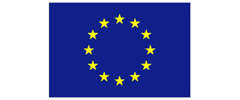Nuclear Energy and Climate Change
Role of nuclear discussed at Bonn UNFCCC Climate Change Talks (Subsidiary Bodies 28), where delegates from all countries are working in technical working groups to prepare for the Climate negotiations later this year in Poznan, Poland (press releases in German and French)
11.06.2008 |WECF Press Release

The NGO Women in Europe for a Common Future (WECF) brought about vivid discussion on the role of nuclear in climate change, at Bonn UNFCCC Climate Change Talks (Subsidiary Bodies 28), where delegates from all countries are working in technical working groups to prepare for the Climate negotiations later this year in Poznan, Poland.
The side event “Nuclear Energy – Roadblock to Effective Climate Protection” brought together country representatives and NGOs. According to Daniel Mittler of Greenpeace Germany, “nuclear power is a problem, not a solution. Nuclear power is dangerous and expensive, and will take too long to contribute to cutting CO2 emissions by 2020”.
Vladimir Slivyak of Ecodefence Russia, said that “some countries such as France and the USA want to get support for nuclear activities from financial mechanisms for climate change”. Hardly any new nuclear power plants are being build. “The nuclear industry wants approval from the UN to attract new funding. If this happens, the risk of nuclear proliferation would dramatically increase. Already today black market trade of nuclear material is a great terrorism thread”, said Slivyak.

“The Finish case of the Oikiluto-3 nuclear power plant is a perfect example of false promises”, said Kaisa Kosonen of Greenpeace Finland. “The nuclear power plant which is build by a French company AREVA, has doubled its price from the original budget, it is 2 years behind schedule, and by last summer there were 1500 quality and safety violations. There is been the suspicion, that AREVA is not so interested in safety, but in cutting down the cost. The cost was planned at 2,5 billion, the contract was signed about 3 billion, costs according to unofficial estimations, are at 5,2 billion Euro, the French government is subsiding the case via their export credit agency, COFACE. So finally the French tax-payer is paying a large part of the Finish nuclear power plant”.
Claire Greensfelder WECF energy advisor, quoting energy consultant Jim Harding, said “for new US nuclear power plants the operating cost will be at least 30 cents per kilowatt hour, for the first 12-13 years, this is absurd when wind and solar are available at 14 cents per kilowatt”.

Svetlana Slesarenok, director of Black Sea Women’s Club, Odessa Ukraine, told the audience that in her daily live she is confronted with the health risks of nuclear industry. “Recently my husband bought spare parts for our car on the Odessa market. The Geiger-counter of a befriended scientist showed that the parts were highly radioactive. Probably these parts come from Chernobyl storage. Most cars and other equipment stored after Chernobyl have been stolen. These parts have been sold probably in all neighbouring countries, including EU countries” said Slesarenok.
Slesarenok also gave the example of the uranium mining town in Dniepropetrovsk region, which has the dubious fame to have the biggest liquid nuclear waste storage, a lake of 22 million cubic meters, when the lake shores dry up in summer, the radioactive dust is spread through the air all over. “Nobody can be sure that they are safe from nuclear waste. If Ukraine, Russia and the other EECCA countries cannot manage their nuclear waste, who can? Even Germany after more than 40 years, has no solution for its nuclear waste” Slesarenok concluded.
Olga Senova of Friends of the Baltic, Russia, said “in our SPARE project we are replacing school windows for 300 USD each, saving 7 megawatt per year, and 3.5 kg of CO2 per year. If we can insulate all our 1000 schools in the North-Western region, we can save several giga-watts of electricity, and take part of our old “Leningrad” nuclear plant of the grid”.

We do not need to spend 3 billion Euro to build a new power plant for our region, as our government wants to do, instead, we need 10 million Euro to exchange all school windows.
Ulrike Roehr of Genanet-cc Germany, presented poll results from Finland, “whereas 60% of the men are in favour of new nuclear power plants, only 28% of women are in favour. Survey after Chernobyl also showed the crucial role of women in educating their families on avoiding contamination; they seem to be more aware of the risk for their families”.
WECF director Sascha Gabizon concluded that the experience from the countries which currently have nuclear power show that nuclear plants are never safe and that human rights are not protected in communities living near uranium mines, waste sites and power plants. Even though the nuclear industry has been highly subsidised by states in the 60 years of its existence, they have not found a solution to nuclear waste disposal guaranteeing the protection of future generations for the coming 250.000 years, “had the Romans had nuclear power, we would still be standing guard over their nuclear waste storage sites”.

More Information
Ms. Sabine Bock, WECF +49-89.232393812
Ms. Sascha Gabizon, Executive Director WECF, +49-172 86 37 586
Women in Europe, +31 30 2310300, wecf(at)wecf.eu
www.wecf.eu
www.womenineurope.nl
Related News
Congratulations Sascha!
Named thirty-third most influential sustainability fighter in the Netherlands
08.10.2018
Priority Actions to Increase Access to Climate Finance for Non-State Actors
SB48 side event: 7 May 2018 at 16:45 CEST in room 181, UNFCCC, Bonn
03.05.2018
Call for Action on Gender and a Pollution Free Planet
UNEA-3 meeting of Women Ministers and Leaders presents Call for Action
09.01.2018
PRESS CONFERENCE: Gender Just Climate Solutions
Watch the press conference hosted today during UNFCCC's Gender Day at the climate negotiations in Bonn (COP23)
14.11.2017
Icons of sustainability: climate change resistance as an art form
Bonn, Gender Just Climate Solutions opening ceremony, coordinated by WECF on behalf of the Women & Gender Constituency's
11.11.2017




































